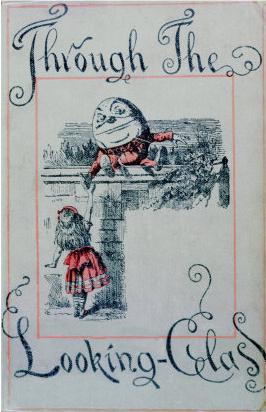Monday, January 7: The Scribbler
THE ORIGIN OF FECES
by James Lincoln Warren
In the current climate of pervasive argument — endemic, I know, in an election year — it is appropriate to examine some of the schools of critical thought that are shaping the future. I am fortunate in being married to a critical theorist, M. P. Warren, who not only has shed considerable light on these new and useful methods, but has provided them with convenient labels. She became aware of the first two schools when she was studying literature in university, prompted by the question, “What hole was this stupid idea pulled out of?”
Procrustes, familiar epithet of one of Theseus’ adversaries on his journey from Troezen to Athens, also known as Damastes, Polypemon, and perhaps Procoptas. He was a brigand who lived between Eleusis and Athens. Having overcome his victims he would force them to lie down on a bed, or on one of two beds; if they were too short, he would hammer them out or rack them with weights to fit the longer bred, if too tall he would cut them to fit the shorter. Theseus disposed of him in like manner.
— The Oxford Classical Dictionary
The Procustean School tortures the facts to fit the theory. An example of this is the theory espoused in a movie a few years ago that Ludwig van Beethoven’s “Immortal Beloved”, the object of three love letters written by him (and sometimes viewed as an analog to Shakespeare’s mysterious “Dark Lady”), was actually his sister-in-law Johanna, with whom he engaged in a bitter custody battle over his nephew Karl. Beethoven’s contempt for Johanna is very well documented — he even went so far as to call her the “Königin der Nacht” (“Queen of the Night”) after the murderous mother in Mozart’s opera “Die Zauberflöte” (“The Magic Flute”). You will also frequently encounter this school whenever anyone uses lots of byzantine statistics.
‘I don’t know what you mean by “glory,” ’ Alice said.
Humpty Dumpty smiled contemptuously. ‘Of course you don’t—till I tell you. I meant “there’s a nice knock-down argument for you!” ’
‘But “glory” doesn’t mean “a nice knock-down argument,” ’ Alice objected.
‘When I use a word,’ Humpty Dumpty said in rather a scornful tone, ‘it means just what I choose it to mean—neither more nor less.’
‘The question is,’ said Alice, ‘whether you CAN make words mean so many different things.’
— Lewis Carroll, Through the Looking Glass
The Humpty Dumpty School ignores what words actually mean in favor of what the user wants them to mean in order to support his thesis. Examples of this are the old Strategic Air Command motto, “Peace Is Our Business” — here “peace” was redefined to mean “threat of nuclear annihilation” — and a disbarred California attorney’s invention of “totem-pole hearsay”, whatever that’s supposed to mean, regarded by the California Supreme Court as “a recurring term of art in [the attorney’s] own private lexicon.” A common contemporary occurrence of Humpty-Dumptyism is the use of the word “decadent” to mean “luxurious”, most frequently applied to chocolate desserts — the OED defines decadent as ” … in a state of decay or decline; falling off or deteriorating from a prior condition of excellence, vitality, prosperity, etc.” In other words, decadent food is rot.
Unwilling to rest on her laurels, M. P. has recently identified two new powerful critical schools.
The first of these is Critical Fundamentalism, or the Dogma of Personal Infallibility. The foundation of this school may be expressed as, “I am always right. Therefore, you’re wrong.” The sublime beauty of this school is that it requires no evidence whatsoever to justify its conclusions, because the only “fact” that needs be recognized is the central thesis of the practitioner’s own infallibility. After one accepts this premise, other facts are clearly irrelevant. It is a favorite among ultra right-wing radio talk show hosts.
Finally, we have the Burger King School. This very elastic school believes that ALL personally held beliefs are valid, or more accurately, that no one opinion can be superior to any other. The beauty of the BK School is that any idea you come up with is therefore correct, even if everybody else disagrees. (You can see that while it may seem to be the very opposite of the Fundamentalist School, the end result is the same.) Its presence is frequently heralded by the phrase, “Well, you’re entitled to your opinion”, delivered in as smug a manner as possible.
This is not merely an agreement to disagree, not merely an acceptance of different interpretations of mutually recognized facts. Quite the contrary, it is a refusal to consider anybody else’s point at all, by sloughing it off as “just their opinion”.
I have detected the BK School in various writers groups when the participants criticize each others’ work. “I didn’t like this passage in your story,” is a frequent comment, very infrequently followed by any justification other than, “I just don’t think it works.” To avoid hurt feelings, the critic will then say, “But it’s up to you, of course. You’re the one who wrote it.” As if there were any question to the contrary.
I’m sure that in the fullness of time, M. P. will discover other innovative and exciting critical methods, and when she does, I will be here to share them with you as we explore The Origin of Feces.























As I read the article, modern examples such as Preventive War and US PATRIOT Acts I and II kept raising their ugly heads and winking.
If there’s a Burger King School, there must be a McDonald’s nearby, perhaps less than 500 yards. I’m considering its greasy premise must be 59 billion billion sold, so therefore it must be right.
Good column. Actually I wrote a song about Procrustes and Theseus (and how many mystery writers can say that?) In the first verse I tell about P and his nasty habits. In the second I tell about T and how Ariadne helped him slay the minotaur. He then abandoned her on an island.
In the third verse it becomes a cautionary tale:
All this happened long ago but still today it’s said
There’re many who would make you change to fit into their bed
And others who will use you for whatever they can get
And dump you when it’s over and sail off without regret…
Metaphors are fun.
Come writers and critics
Who prophesize with your pen
And keep your eyes wide
The chance won’t come again
And don’t speak too soon
For the wheel’s still in spin
And there’s no tellin’ who
That it’s namin’.
For the loser now
Will be later to win
For the times they are a-changin’
Mr. Zimmerman words still stand strong and can often be taken many directions. While much poetry/songs he wrote were in protest, words are still strong today in any connotation taken. Words, thoughts, critics, individualism, etc—blowin’ in the wind.